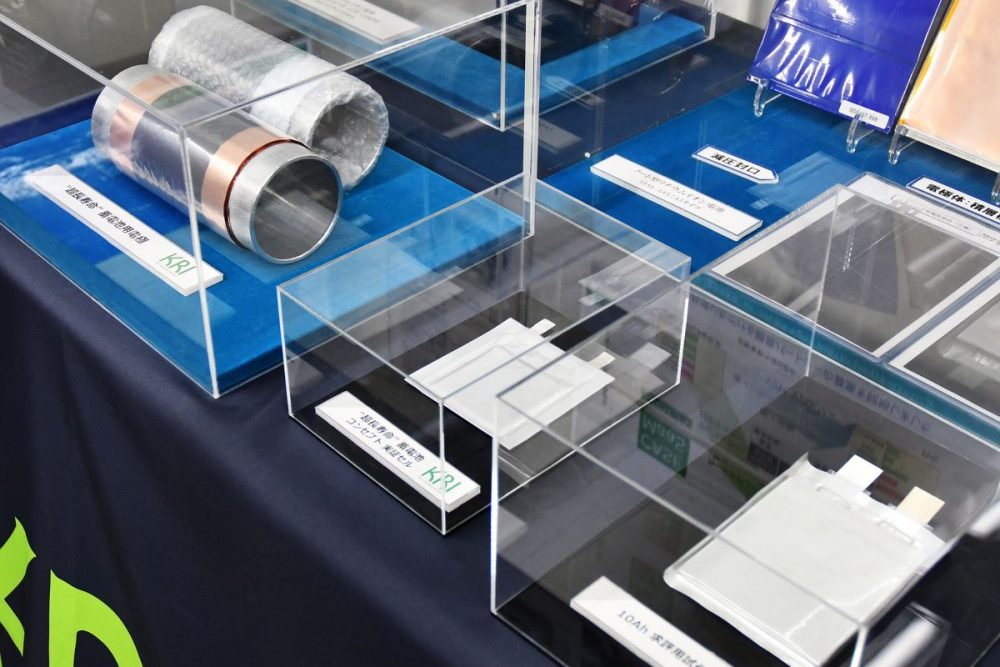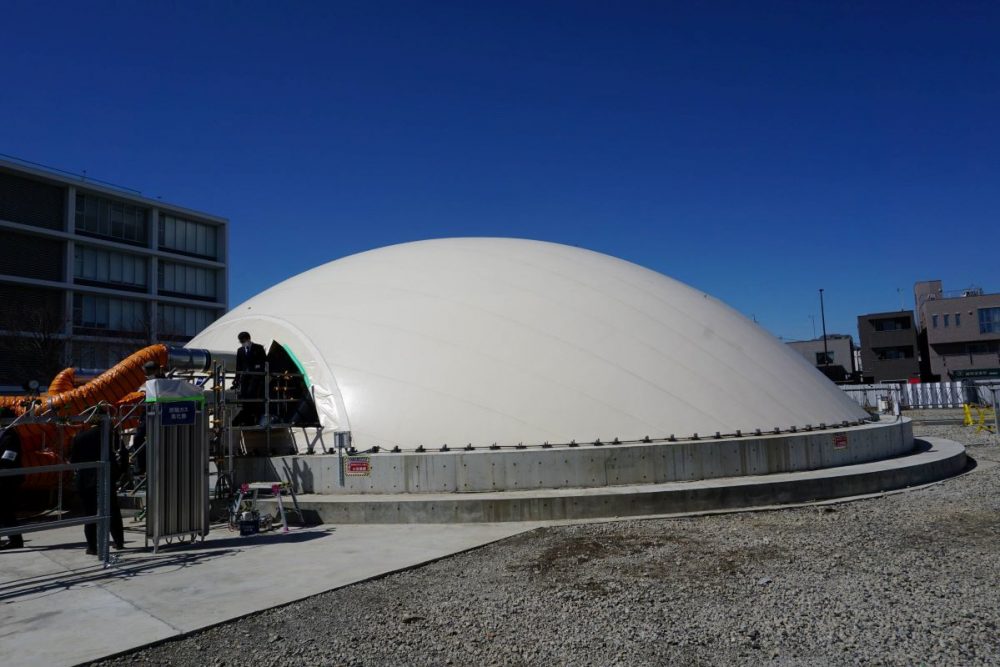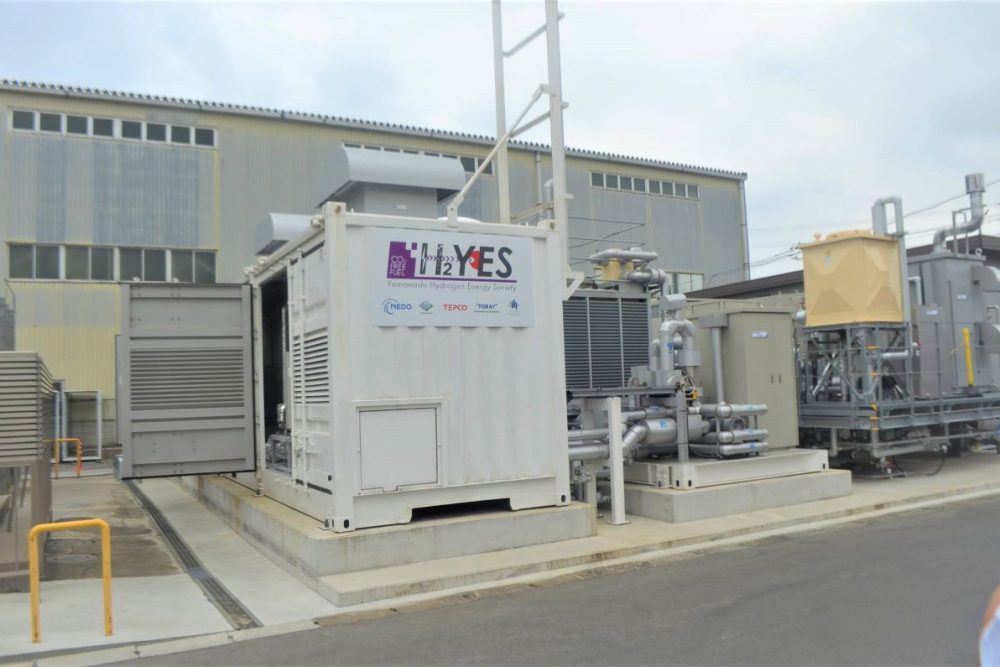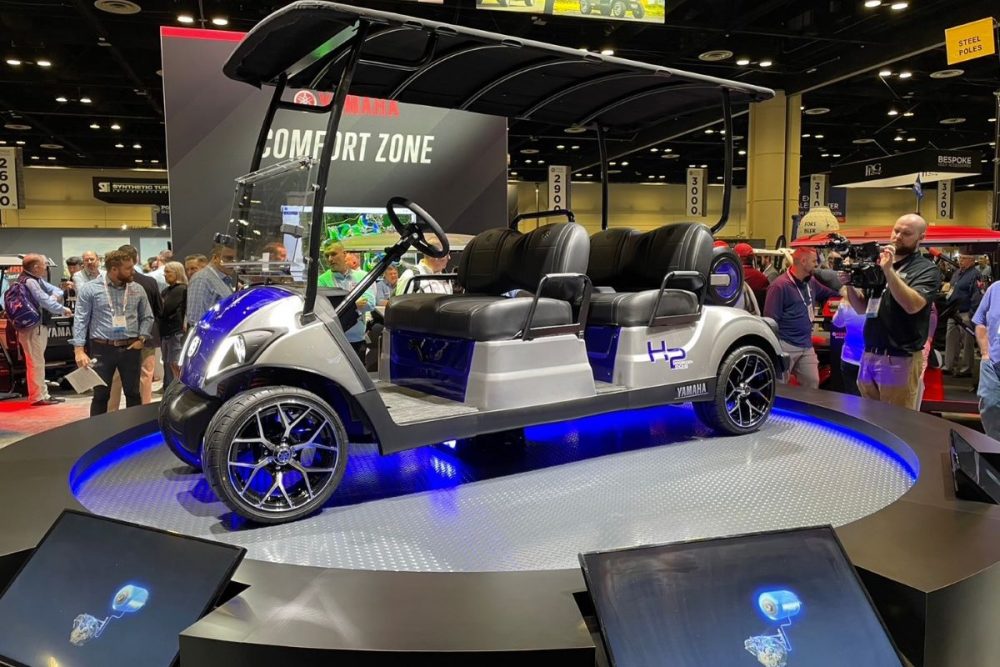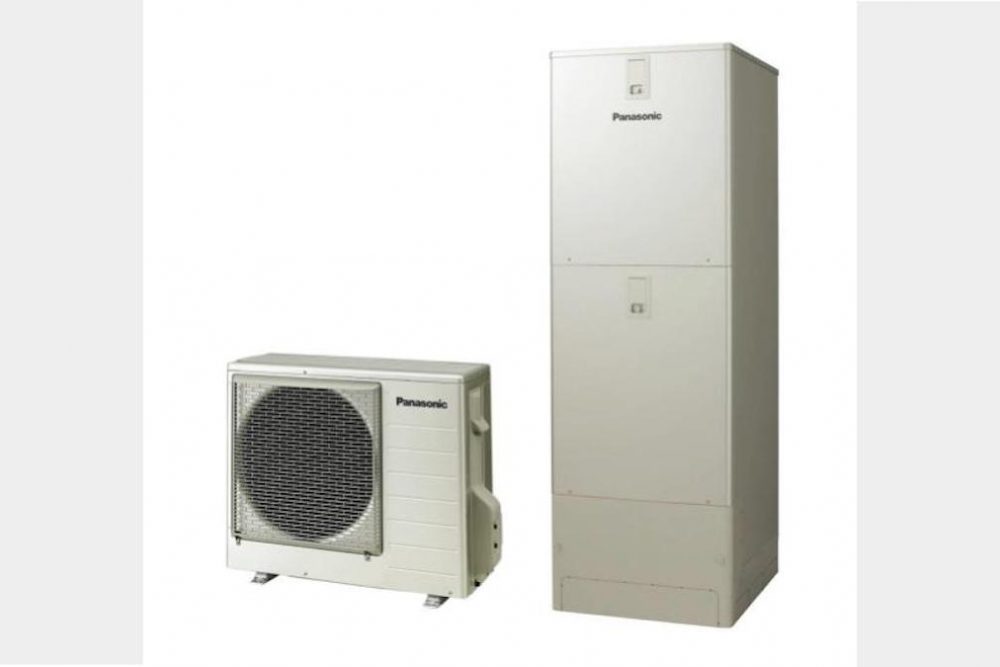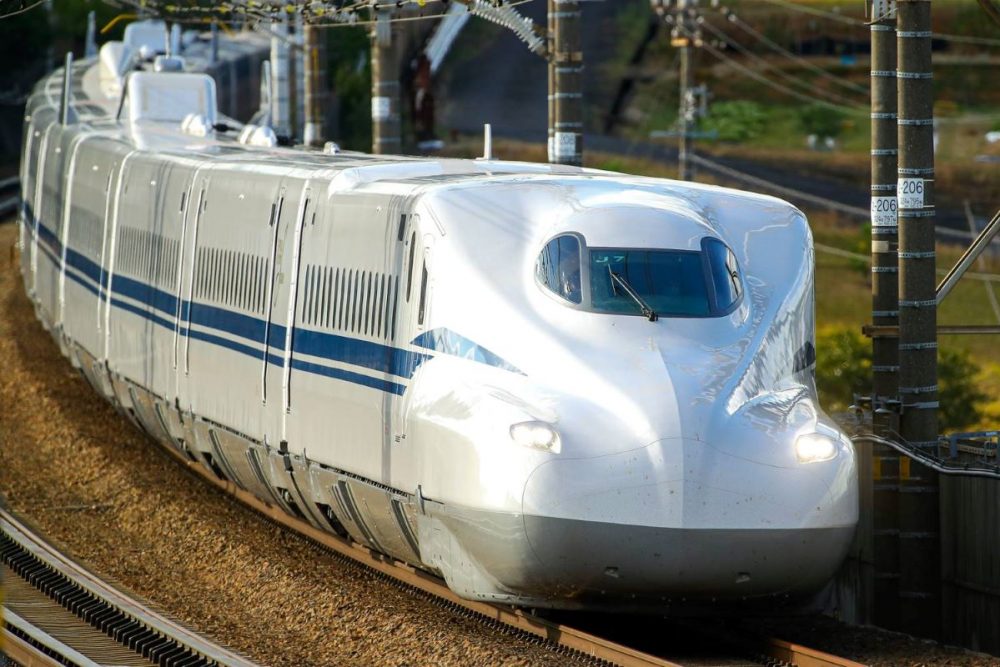[Vietnam! Moving Ahead Together] Japanese Company Junk & Co. Takes on the Challenge of Recycling in Vietnam
In part one of a two-part series, J2E columnist Tsuneo Taguchi shines a spotlight on a new recycling company in Hanoi and its determined and enterprising CEO.
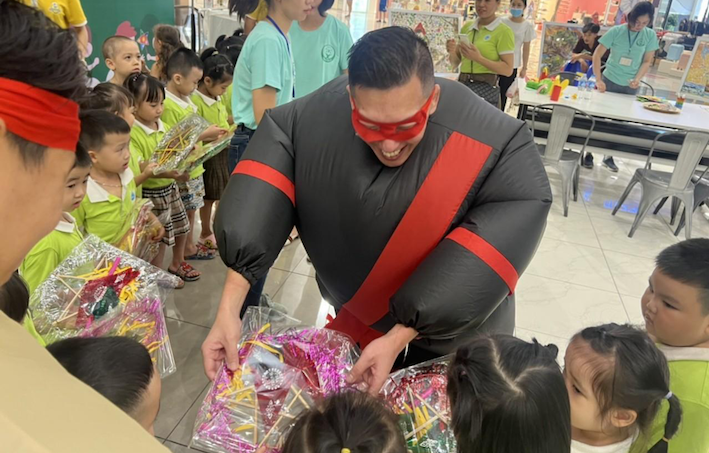
このページを 日本語 で読む
The event on recycling took place at the second AEON Mall to be completed in the Ha Dong district of Hanoi. Just like those in Japan, the mall's large first-floor event hall was filled with the cheerful sounds of music and children playing.
They were having fun with PET plastic bottles, coloring them and making into shapes of their choice. But there is one rule that they had to follow.
The cap and label had to be removed from the plastic bottle before using it.
The event was designed to give young children first-hand experience, rather than just explanations, in "separating" waste for recycling.
Call me the "Recycling Ninja."
Takatoshi Nakamura brought his experience in recycling from Japan and came to Vietnam. Having left his own family back in Japan, Nakamura was at the AEON mall teaching Vietnamese children the importance of separating waste.
Inheriting the know-how of his father, who ran a recycling business in Japan for over 40 years, Nakamura set up a 100% Japanese-owned company in Hanoi.
Drawing on Years of Experience in Japan
Nakamura established JUNK & Co. Vietnam in August 2020. The company is engaged in the wholesale, import, and collection of recycled paper in Hanoi. It is 100% Japanese-owned, and Nakamura's reason for this was simple and clear.
"I wanted to be able to move quickly whenever we want or need to do something."
Being able to implement quick decisions was what helped Nakamura overcome many hardships in Japan.
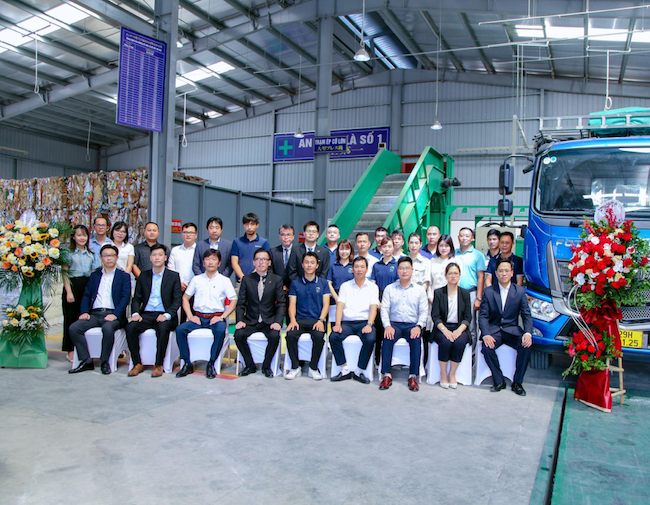
He explained, "In this paperless era, collection of newspapers and magazines has drastically dropped. But with online shopping, items are delivered daily in cardboard boxes. Vietnam is no exception. Surprisingly, paper recycling is still holding steady."
Nakamura's past experiences shaped his current thinking. In Japan, his company had made shrewd responses to the changing environment surrounding paper.
Following his father's advice upon graduation from college, Nakamura began his career at Japan Pulp & Paper Co. Listed on the first section of the Tokyo Stock Exchange, the company ranked number one in wholesale paper sales volume.
After acquiring knowledge of the industry, Nakamura joined Shinwa Syouji Co. Ltd., his father's Kyoto-based waste collection business.
When the price of waste paper scrap plummeted with the Lehman Shock, many companies in the industry closed their doors. But Shinwa Syouji managed to weather the storm.
In fact, the Shinwa Syouji Group grew to account for more than 10% of the total volume of recyclables collected in the Kansai region. From its Kyoto headquarters, it continued to expand at a breakneck pace, adding 16 resource recycling plants in Osaka, Mie, and Shiga prefectures. Today, those 16 plants are still fully operating.
Looking back, Nakamura said, "The resource recycling business in Japan is mature. However, if you look around the world, there are countless countries that need the know-how we have accumulated in the recycling business."
Why Vietnam?
When I asked this question, Nakamura showed me some statistics. To my surprise, I learned that Vietnam imports a large amount of waste paper from Japan. The reason for this is that Japanese waste paper is mainly recycled paper, which easily dissolves during processing.
Japan has a high recycling rate for waste paper. Even when sold to paper companies, there is a surplus.
In the past, the surplus waste paper was exported to China, leading to profits. However, China stopped importing waste paper all together to focus on domestic waste paper collection.
Many companies that had depended on exports to China went out of business. But Nakamura and his company had diversified the countries they exported to early on. They thus were able to avoid a crisis by shifting their waste paper sales to Thailand, Taiwan, Indonesia, Malaysia, and Vietnam.
It was at this time that Nakamura began to pay special attention to Vietnam.
"The recovery rate of waste paper in Vietnam is 31%, the lowest in Southeast Asia. That is why we were convinced that there was room for growth and that our know-how could be utilized to the fullest extent," Nakamura explained.
So, Why Hanoi?
There is another reason why Nakamura set his sights on Vietnam, especially the capital city of Hanoi.
Paper companies that would use the large quantities of waste paper Nakamura planned to collect were concentrated in the suburbs of Hanoi.
"About 20% of the total amount of paper produced in Vietnam is made at small and medium-sized mills in Bac Ninh Province," said Nakamura.
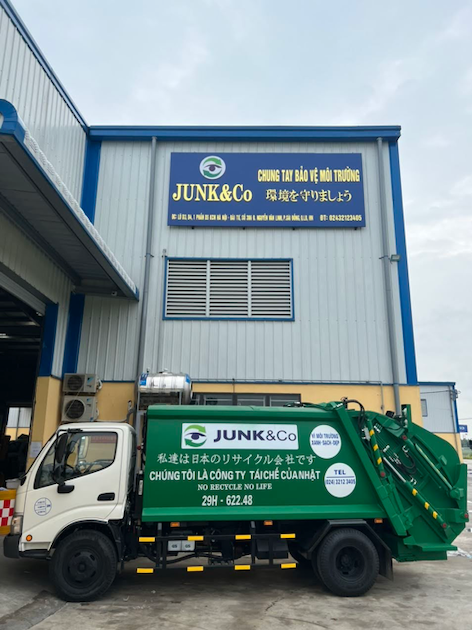
Located about an hour's drive from the city center, Bac Ninh is located in Hanoi's suburbs. It is also home to a large concentration of plants of Japanese-affiliated companies. And small, family-run paper mills are also spread out in rows in the area.
Nakamura had the sufficient know-how in recycling and collection. He had also secured likely customers for the waste paper.
However, the biggest hurdle he still faced was how to increase the volume of recyclables collected and how to promote separation of recyclables to ensure high quality collection.
The success or failure of his business would come down to this.
Waste itself can generate income as long as it can be sorted. But in Vietnam, awareness of the importance of separating waste remains low. The same can be said of Japan in the past.
Nakamura, with his know-how, was up for the challenge of figuring out how to get systems for separating waste in place.
Once he made the decision to "take the plunge" in Vietnam, Nakamura moved quickly. He convinced his family and his brothers who ran their company, and moved to Vietnam by himself.
Part two of this report will discuss Nakamura's unique plans to break into the Vietnamese market and his strategy for the future.
Read part two of this column on Takatoshi Nakamura and his Hanoi-based recycling company here.
このページを 日本語 で読む






